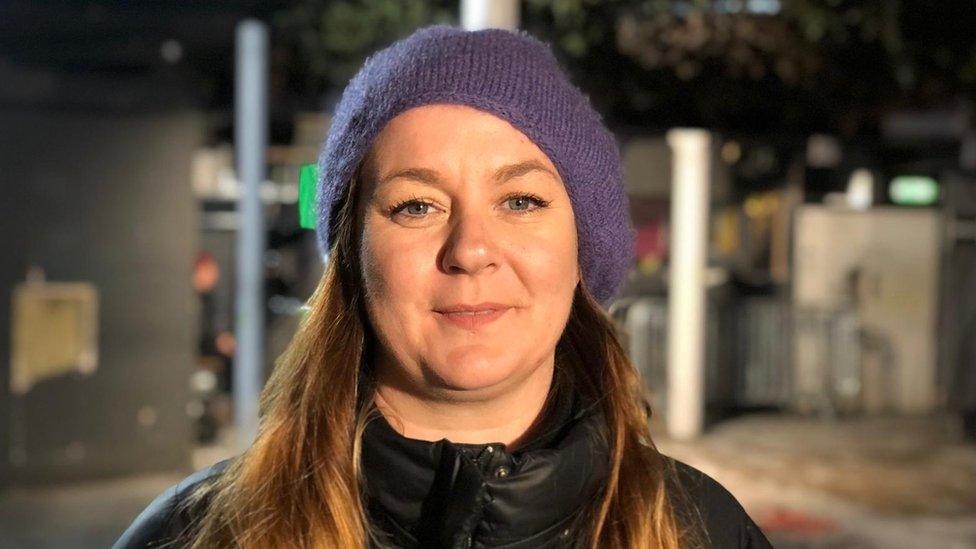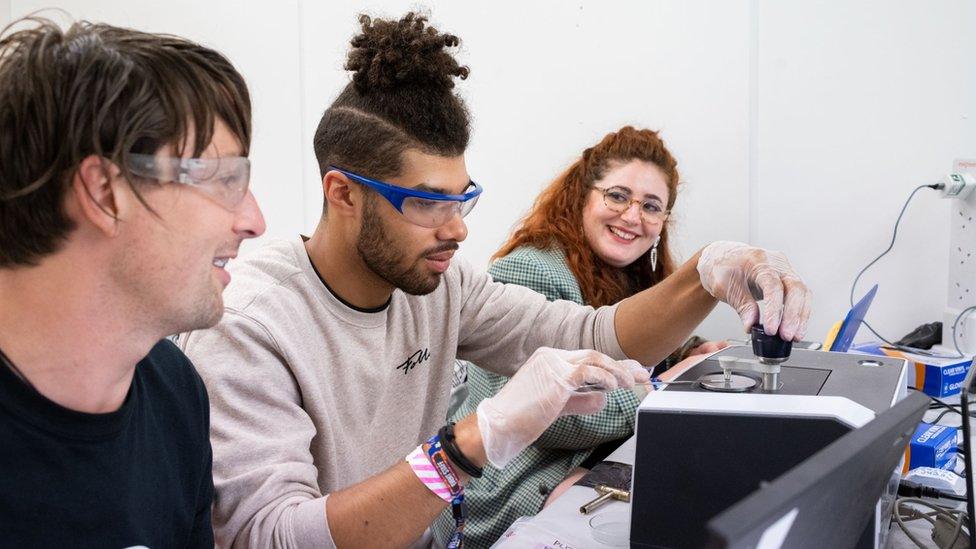Bristol adapts harm reduction approach for drug use
- Published

Carly Heath said harm reduction was the most important conversation to have
Bristol has become the first UK city to adopt a city-wide, harm-reduction approach to drugs and alcohol.
This approach will prioritise user safety, replacing current zero-tolerance policies.
The campaign aims to highlight the risks of substances, while still not tolerating their supply.
Carly Heath, night-time economy adviser at Bristol City Council, said harm reduction was "the most important conversation" to have.
"People should know the risks and dangers of alcohol and other substances," Ms Heath said.
Harm reduction aims to provide judgement-free support to lower the risks surrounding drugs and alcohol.
Ms Heath said she hoped the new approach will allow people to access help more easily, through helplines, drug analysis services such as The Loop and sharing knowledge of what to do when someone faces a drug or alcohol-related emergency.

The new approach aims to reduce harm from drugs and alcohol
"People use drugs for a wide range of different reasons," Ms Heath said.
"What we are trying to advocate is people learn to recognise what a drug-related emergency looks like and what to do in that situation."
The new policy means Bristol City Council, the University of Bristol and businesses from Bristol's night time economy will coordinate on the harm-reduction approach.
Previous licencing regulations included a zero-tolerance approach when it came to drugs.
This did not allow for proper safeguarding, according to Ms Heath, as it required strict action, such as calling the police.
The new approach will allow organisations to respond to drug and alcohol use by offering help, Ms Heath explained.
"As someone who has worked in the sector for many years, I have seen first-hand the avoidable tragedies from alcohol and drug-related harm," said Ms Heath.
"Many of those failures come from poor policy decisions imposed on premises by "zero tolerance", and the legacy of this outdated point of view means licensees are nervous of talking about the negative effects of drugs and alcohol.
"For harm reduction to become our stock position it's important we have a challenging conversation about drug and alcohol consumption."

Follow BBC West on Facebook, external, Twitter, external and Instagram, external. Send your story ideas to: bristol@bbc.co.uk , external
Related topics
- Published12 May 2022

- Published26 October 2022
